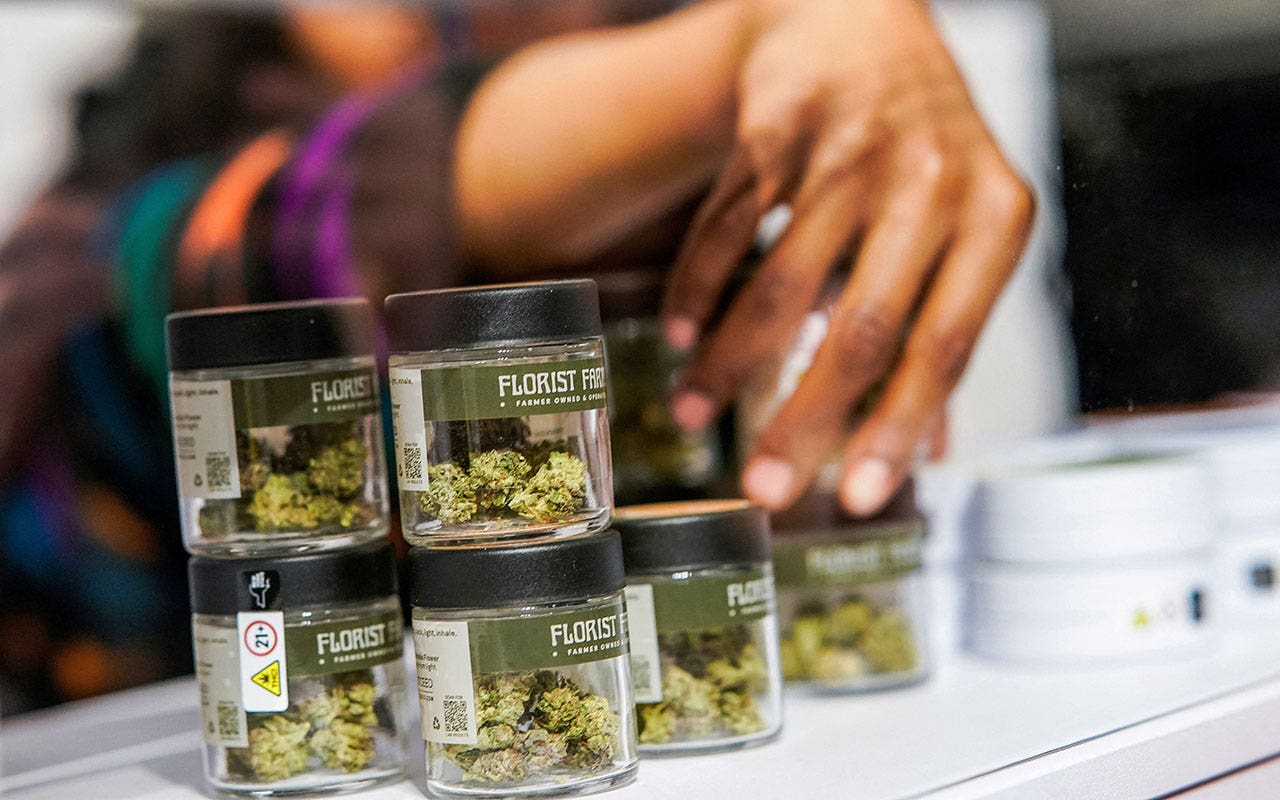The movement objecting to President Biden’s position on Israel by voting “uncommitted” drew a significant share of the vote on Tuesday in Minnesota despite having a hastily organized and low-budget campaign.
With 90 percent of ballots counted on Tuesday night, “uncommitted” had earned 19 percent support, enough to send delegates to the Democratic National Convention. The number of protest votes in Minnesota suggested that dissatisfaction over Mr. Biden’s stance on the war in Gaza had spread beyond Muslim Americans to progressives and younger voters.
The state’s contest was just one of several across the nation on Super Tuesday in which Democrats registered unhappiness with the president.
In North Carolina, 12 percent of voters had cast ballots for “no preference” with more than 95 percent of the vote counted. In Massachusetts, “no preference” had earned 9 percent with more than half the vote in. Last week in Michigan, more than 101,000 people — 13 percent of voters — supported “uncommitted” in the Democratic primary, winning at least two delegates.
The Biden campaign, which has tried to downplay the significance of the “uncommitted” efforts, issued a statement early Wednesday about the Minnesota results.
“The president believes making your voice heard and participating in our democracy is fundamental to who we are as Americans,” said Lauren Hitt, a campaign spokeswoman. “He shares the goal for an end to the violence and a just, lasting peace in the Middle East. He’s working tirelessly to that end.”
The last-minute campaign in Minnesota was assembled by a coalition of Muslim voters and progressive Democrats who are angry with Mr. Biden for his alliance with Israel.
“Our goal is to get the president’s attention, and we are doing that,” Asma Mohammed, one of the effort’s organizers, said at a watch party in Minneapolis as the results came in. The crowd broke into chants of “Free Palestine!” as the number of “uncommitted” votes kept rising.
The organizers had less time and money than their Michigan counterparts, whom they said had helped inspire their efforts. They began their campaign roughly a week before the primary, with early voting already underway, and said they spent about $20,000. In Michigan, organizers were able to spread their message for three weeks, and raised about $200,000. They also benefited from the endorsement of influential supporters, like Representative Rashida Tlaib, the Detroit-area Democrat, and from a populous Arab American community.
Still, Minnesota’s large population of Somali Americans, progressives and late-deciding voters with a history of backing quirky independent candidates allowed “uncommitted” to put up a strong showing.
While Minnesota has a history of supporting unconventional candidates — it elected Jesse Ventura as governor, sent Al Franken to the Senate and backed Bernie Sanders in the 2016 Democratic primary — there isn’t much history against which to gauge Tuesday’s “uncommitted” vote. The last incumbent Democratic president, Barack Obama, won Minnesota’s caucuses in 2012. In 2020, just 2,613 Minnesota Democrats picked “uncommitted.”
Representative Dean Phillips, a Democrat from the state running a long-shot presidential campaign, also drew a share of the vote away from Mr. Biden. Late Tuesday, he was earning 8 percent.
Whether the dissatisfaction with Mr. Biden registered by Minnesota’s primary voters will damage Mr. Biden in the general election is another question. In 2012, “uncommitted” won double-digit percentages against Mr. Obama in primary contests in Alabama, Massachusetts, North Carolina and Tennessee. None of those states, however, had organized protest efforts, and none, like Michigan and Minnesota, were competitive in November.
“Uncommitted” supporters have said their movement — which spread across the Super Tuesday states in the days leading up to the primaries — is influencing policy. The Biden administration has lately signaled its support for a cease-fire with more urgency.
With its striking share of the vote in Minnesota, the “uncommitted” movement has exposed a weakness in Mr. Biden’s re-election bid: Many of those who supported him in 2020 do not believe that his policies have helped them.
“Gaza is the main thing, but he hasn’t done anything on jobs, gas prices and the border,” said Mudi Ali, 41, who voted “uncommitted” in Minneapolis on Tuesday. Mr. Ali, who is a Somali American Muslim, said he would not vote for the likely Republican nominee, former President Donald J. Trump, but was considering sitting out the election in November rather than supporting Mr. Biden again.
The results suggested that the “uncommitted” movement was earning support beyond Muslim voters — a warning sign for the Biden campaign, which is depending on turnout from students and progressive voters. At a community center in a Minneapolis neighborhood with a notable Somali American population, organizers had expected significant turnout. By closing time, however, only about 200 people had voted, well below the level of the 2020 primary, poll workers said.
As of 11 p.m., “uncommitted” was poised to earn delegates from three congressional districts in and around the Twin Cities, in addition to statewide delegates. The threshold for earning delegates is 15 percent.
The challenge for Mr. Biden is persuading large numbers of disaffected Democrats to return to the party’s tent.
“He needs to know Democrats aren’t going to blindly support him,” said Emma Kopplin, 21, a senior at Macalester College in Saint Paul who voted “uncommitted.”
One of the central themes of Mr. Biden’s campaign has been that Mr. Trump poses an urgent danger to American democracy. Gov. Tim Walz of Minnesota, a top Biden ally, said in an interview on Tuesday that “at the end of the day, Democrats are going to come home.”
“They know that the choice is democracy versus totalitarian chaos,” Mr. Walz said.
But another “uncommitted” voter, Charlie Fletty, 27, of Saint Paul, said she wanted to see more policy achievements from Mr. Biden and fewer warnings about Mr. Trump.
“They’ve held Trump over our head for years,” Ms. Fletty said.
And although Mr. Biden won the primary, even some Minnesotans who voted for him expressed lukewarm enthusiasm.
“I think he’s too old,” said Mike Roberts, 70, of Minneapolis. “But you can’t change horses at this point.”






